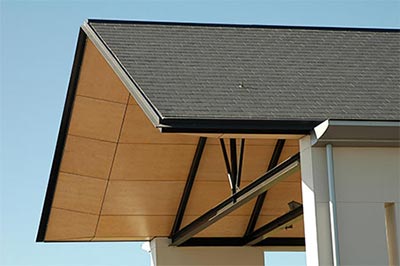When used for roofing plywood panels are covered and protected by a variety of building materials that keep the elements at bay including roof felt underlayment flashing and shingles.
Soft plywood on roof.
Why is plywood used in roofing.
Plywood will weaken over time sometimes softening in places where the wood has gotten damp because of those gaps.
Set the depth of the circular blade to cut through the thickness of the roof sheathing.
Most roofs have plywood sheeting underneath the roofing tiles or shingles.
Without good attic ventilation your roof gets extremely hot.
Roof decking is the material that lies on top of the main roofing structure and the underlayment and roof covering is applied on top.
The reason for these soft spots is that the layer underneath is probably very soaked due to gaps in the shingles cause over time and weather changes and the water is seeping through the sheeting.
And that extreme heat can damage both your shingles and the wood decking below them and causing your roof to feel soft when walking on it.
When used in flooring plywood functions as the subfloor that supports hardwoods tile and carpet floors.
Over the period of manufacturer s designated roof lifetime of 25 to 30 years that plywood is exposed to heat in the summers heavy rains and the winter weather and cold dampness it brings.
Severe weather 1 2 in common douglas fir plywood sheathing application as 4 x 8.
If you can tell there s a soft spot on your roof this most likely means that the substrate below the roofing material is damaged and deteriorating.
Strip out all materials such as fiberglass or wool insulation between the cavities to expose the roof s support beams.
Inadequate attic ventilation can also cause your shingle roof to feel spongy or bouncy.
Most roofs have plywood sheeting underneath the roofing tiles or shingles.
In roofing plywood can be used as roof decking.
Do not cut into the roof rafters.
In roofing plywood is often selected due to its strength.




























